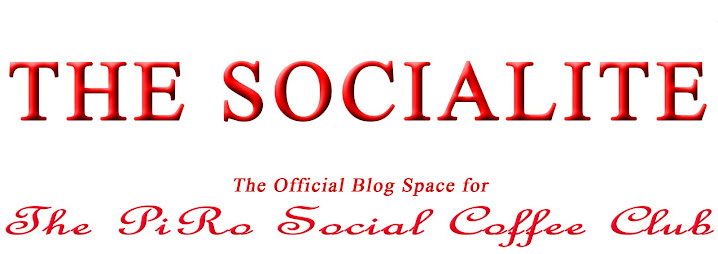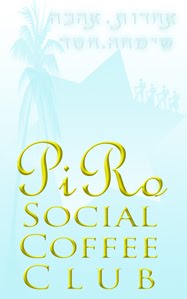Daniyelle writes: "Is it wrong for a Jew to celebrate the secular New Year? Is there an actual commandment against doing so? I commemorate Rosh Hashana every year, and I know it's not 'Jewish' to go out on Dec 31., but what harm can it do?"
Rabbi's response:
This is an excellent question and one that has been addressed by several contemporary (or at least in the last 100 years) Halachic authorities, in their discussions concerning secular American holidays. They’ve invariably discussed the halachic issues from the standpoint of three principles: (1) avoda zara (Idol worship); (2) chukot hagoyim; (customs and mores of the Gentiles) and (3) adding mitzvot.
I don’t recall #1 or #3 having any significant relevance to the observance of January 1st as a New Year, for rank and file Jews would never attribute divinity to a day (some) associate with the anniversary of Jesus’ brit milah, or consider celebrating New Years as some additional “mitzvah.” We know what Rosh Hoshana means to us, and never the twain do they overlap or share any form or notion of comparison.
That having been said, what about #2, “Chukot HaGoyim?” Biblically, Jews are barred from emulating the customs of gentiles (Leviticus 18:3). The Vilna Gaon ruled that all customs were suspect unless we know they have a valid Jewish basis. For this reason, as an illustration, many Chasidic Jews eschew wearing neckties, and others avoid all Western attire. The Shulchan Aruch, “Code of Jewish Law,” was more lenient however, with the Rema, (Rabbi Moshe Isserles) adding that the prohibition against emulating gentile customs applies to activities that promote licentious behavior or that is tied to avoda zara. Even according to the most strict Chasidic sentiment on the issue, with respect to clothing, there is no problem if it is beneficial (e.g., a distinctive uniform to identify a doctor) or displays honor or is otherwise reasonable. I’m aware of Chasidim in the military who, of course, don official uniforms.
Getting back to New Year’s Day, according to Rav Moshe Feinstein, it’s sufficiently divorced from its religious origins to be permissible, but a "ba’al nefesh" (particularly scrupulous observant Jew) will refrain from it’s observance. Accordingly, Thanksgiving is clearly permissible but Halloween is very difficult to justify.
What harm would there be to “go out,” and celebrate New Years? Don’t drink and drive, nor promote licentious behavior and you should be fine.













Regarding "emulating the customs", I can you a long list of customs that we took from goyim we lived amongst.
ReplyDeletejust a few:
-The costumes of ultra orthodox men are eastern european garbs taken from gentiles, no argument there. our myopic hostoric view pretends that it is a jewish custom. the Jews of talmudic era did not dress like that.
-much of the ashkezic tunes for shabbat are borrowed from german music and tunes
Am I wrong?
Happy um..Holidays? Well yes!
ReplyDeleteThe other day, as I was shopping at Trader Joes, my checker was reflecting out loud on how he should greet me. He couldn't say, Happy Chanuka, he reasoned, because that was over nearly a month ago. And he couldn't wish me a merry...for obvious reasons. So he decided that the nice, pareve and politically correct greeting: "Happy holidays" would be just right, so as to not leave me out. But, you know what? He was right! And here's why:
The Gemara in Avoda Zara (8a) Tells us, The Roman holiday of "Calenda" is celebrated for 8 days after the transition time of Teves, and "Saturnura" is celebrated for 8 days before the transition time of Teves, based upon the following historical incident: When the first man saw that the days were getting shorter and
shorter, he said, "Oy vey, it must be because of the sin that I committed, that I have brought death to the formerly perfect world, causing it to become dark and returning it to its primeval state of tohu vavohu (chaos and void. Is this the death, that I am being punished with from Above?"
What was Adam's response? He fasted and davened for a week. But when he saw after that week that the days were starting to get longer and that this was just the way that Ha-Shem set up the world to run, he went and celebrated an 8 day holiday. The next year, as a remembrance, he made them both holidays. Adam established these holidays to give thanks for Ha-Shem's greatness (literally, "for the sake of Heaven") and they (the Romans) established them for idol worship."
It is interesting to note that the name of the first holiday: Saturnura, when taken apart becomes Satur Nura, which in aramaic means, "the light turned away". Adam Harishon, the first man, intended that the holiday coinciding with Dec. 25, would fulfill the verse in Psalms "How great are your works, Ha-Shem". Calenda obviously refers to New Years, and is the source of the word calendar. How ironic that Satur Nura became Saturnura or Saturnalia, which in turn was adopted by our Christian neighbors to became yet another celebration.
I remember being told by the late Biala Rebbe of Bnei Brak, of holy and blessed memory, that Rabbi Chaim, The Holy Divrei Chaim of Zanz, would alway drink a l'chaim on the secular New Year, and declare the following: "Master of the Universe, look at how the secular world celebrates its New Year and look at how your beloved people the children of Israel celebrate theirs: The nations of the world celebrate the new year with drunkenness, wild celebrations and gunshots, and your people Israel celebrate theirs with prayer, repentance, and acts of loving kindness and reconciliation. Please, therefore, look upon us kindly, and help us re-establish Your Kingdom on Earth for ever and ever. He would then drink a l'chaim (to life!)
So now you know that from its origin, the real purpose of their holidays was to celebrate Ha-Shem's total caring for each of us and His involvement in our world.
May the one who grants wisdom, open up the eyes of the blind and make this year's "Calenda" truly a celebration!
Well said my holy brother! Love the Gemora passage in Avodah Zara, which provides a great historical reference point of the origins of idolatry. Best, aaron
ReplyDeleteDrM,
ReplyDeleteAs quoted from the Rema, "emulating gentile customs applies to activities that promote licentious behavior or that is tied to avoda zara." If the examples you have in mind fit into these categories, then according to the Rema, I reckon many of us are violating this Biblical issur.